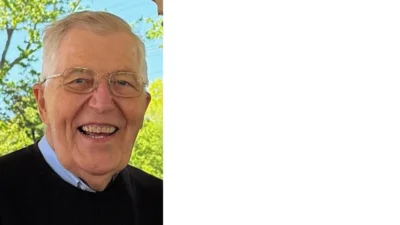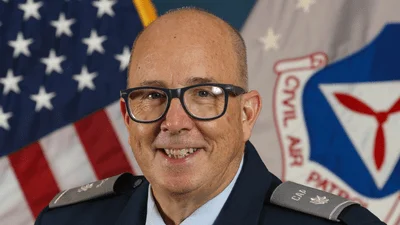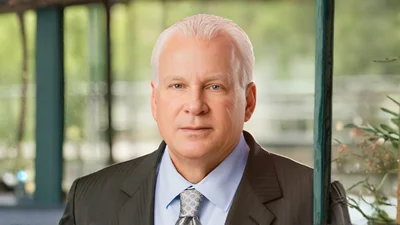John Chapman was born on Sept. 26, 1774—250 years ago—in Leominster, Massachusetts. Though born in Massachusetts, Chapman would eventually make his way through Pennsylvania into the Ohio frontier and ultimately eastern Indiana.
Along the way he would establish a business empire and become one of the major landowners in Ohio. By the time of his death in 1845, Chapman was widely known throughout the frontier and news of his death was carried in papers across the country, his life eulogized in speeches, poems, and song. If his name doesn’t ring a bell, his nickname should; Chapman became better known in death as Johnny Appleseed.
While most Ohioans—indeed, most Americans—have heard of Johnny Appleseed, few realize that his most formative years were spent in north central Ohio. It was here that Chapman truly became a savvy businessman and built his empire, and it was also here where many of the primary sources used to study him originated. Thanks to land holdings, business agreements, and personal accounts from residents who knew him, we can establish that John Chapman spent nearly 30 years living in Richland and Ashland counties (Ashland County was formed from parts of Richland County after Chapman’s death).
This year, the Cleo Redd Fisher Museum in Loudonville is honoring Chapman with an in-depth exhibit.
“The first thing you’ll find out is that he was a real person. It’s surprising how many past visitors to the museum thought he was only a Disney character,” said Kenny Libben, curator of the museum.
In addition to detailing Chapman’s biography, the exhibit explores why apples were important, how Chapman’s legacy evolved, and separates fact from fiction—including whether he wore a pot on his head. The exhibit brings attention to Chapman’s time spent in the area, especially Perrysville and Green Township which Libben said served as a “home base” for Chapman during his time in Ohio, as well as other residents like Rosella Rice, who personally knew Chapman.
The exhibit is temporary and runs through Oct. 11, after which the museum will convert it into a traveling exhibit and made available to schools, libraries, museums and more.
Development of the exhibit was funded by a community grant from the Ashland County Community Foundation, with in-kind support from Premier Metals in Loudonville. With the exhibit’s run at the museum ending, anyone interested is encouraged to visit soon. The museum has noted an increase in visitation this summer due to the popularity of the exhibit, which has received state and national attention.
Celebrating Johnny Appleseed’s 250th birthday has been a continual effort for the museum and other local history organizations throughout north central Ohio. Among those efforts, the museum has donated certified apple trees, grafted from the last surviving tree planted by Chapman, to McMullen Elementary in Loudonville and to Weltmer Park in Perrysville.
The McMullen tree was planted this spring with the help of students and the Loudonville Tree Committee while the Perrysville tree will be dedicated by the Village on Saturday, Sept. 28. The museum has partnered with the Malabar Farm Foundation to demonstrate apple cider pressing during Heritage Days at Malabar Farm State Park on Sept. 28 and 29 and will again showcase the historic cider pressing demonstrations in front of the museum on Friday, Oct. 4 from noon to 5 p.m.
The Cleo Redd Fisher Museum is located at 203 East Main Street in Loudonville, Ohio. The museum is open weekdays from 10 a.m. to 4 p.m., except for the first week of October when the museum is closed Monday and open Tuesday through Saturday from noon to 8 p.m. during the Loudonville Free Street Fair. Admission to the exhibit and the entire museum is free—something Libben said has been a priority for the organization despite not receiving any public funding.
“We rely on donations from visitors and the community, but providing free access and educational opportunities to everyone regardless of income is something that we are passionate about.” For more information on the museum and events visit, crfmuseum.com or call the museum at 419 994-4050.






